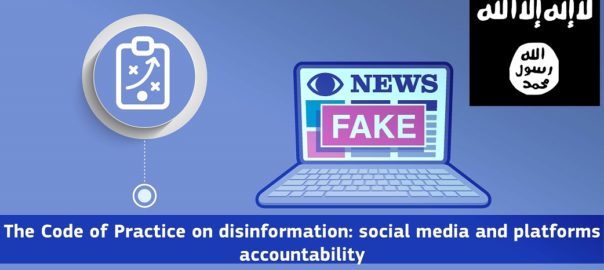The Half-Measure of Human-Grounded AI Ethics. Within the context outlined thus far, as argued by Coeckelbergh and Sætra, the debate carried on by LLMs ongoing development seems to be between two main point of view: the Marxist concept of “technological determinism” and the “technological instrumentalism” or “technical orthodoxy”.
Continue readingTag Archives: Cybersecurity
From Data to Division 4 of 5: Artificial intelligence – by Daniele M. Barone
Mimicking a Moral Course for LLMs. The first way to stem LLMs from a conversation driving to inappropriate content are the so-called “guardrail messages,” as “I’m sorry, I cannot generate inappropriate or offensive content” or “As a large language model, I cannot … ”.
Continue readingFrom Data to Division 3 of 5: Artificial intelligence – by Daniele M. Barone
A Noisy Digital Environment as a Biased Dataset. As previously analyzed, human language in public and political debates impacts not only how individuals form opinions but also how AI systems, including LLMs, interact with users and further shape political discourse.
Continue readingFrom Data to Division 2 of 5: Artificial intelligence – by Daniele M. Barone
The Human Touch in LLMs.
As previously analyzed, LLMs represent a significant step toward human-like AI interaction. While they lack true understanding, they learn to associate words and interpret meaning through data analysis.
Continue readingGuerra cibernetica e guerra russo-ucraina: la disinformazione. Conferenza on line il 16 marzo 2023 – 10:00
Guerra cibernetica e guerra russo-ucraina: la disinformazione.
Conferenza on line il 16 marzo 2023 ore 10:00 con la partecipazione del Generale Alexander Potity del SSSCIP-State Service of Special Communications and Information Protection of Ukraine e Head of the Department of Security of Information Systems and Technologies. Place: MS Teams platform: https://tiny.pl/wkbg5 Continue reading
Social bots and synthetic interactions to stage digital extremist armies (part 3) – by Daniele M. Barone
According to a report by GNET, while Daesh (and jihadist groups in general) relied heavily on bot technology, racially and ethnically motivated violent extremist networks have so far refrained from widespread bot usage, mostly because of their different objectives and the more permissive online environment in which they operate.[i] Nevertheless, far-right or conspiracy groups’ use of social bots can still highlight further communication branches in which AI can be exploited. Continue reading
Social bots and synthetic interactions to stage digital extremist armies (part 2) – by Daniele M. Barone
Jihadist groups’ ability to build and maintain a large online community through social media is well known, as well as their capacity, growing out of a state of necessity or creativity, to be early adopters of new technologies. Continue reading
Social bots and synthetic interactions to stage digital extremist armies (part 1) – by Daniele M. Barone
On June 16, the European Commission welcomed the strengthened Code of Practice on Disinformation, a framework to set out commitments by platforms and industry to fight disinformation.[i] Continue reading
Information Disinformation Cybersecurity
ITSTIME con War Studies University promuove la conferenza internazionale: Information, Disinformation and Cybersecurity. Continue reading
Belarusian Cyber-Partisans e il Ransomware come strumento di guerra ibrida – by Marco Zaliani
Il 2022 è iniziato con un riacutizzarsi delle tensioni tra Russia e Ucraina. Tensioni iniziate nel 2014 con l’annessione della Crimea da parte della Russia e che, in questi giorni, stanno vivendo un nuovo impeto a seguito dell’ammassarsi di truppe russe proprio al confine tra i due stati. Continue reading
La cybersecurity nel Metaverso – by Giacomo Buoncompagni
“Nello sviluppo del Metaverso bisognerà costruire sicurezza e privacy”. Con queste parole il ceo di Facebook, Mark Zuckerberg, ha presentato il “nuovo Facebook”. Continue reading
Facebook Papers: radicalizzazione, intelligence gathering, digital ethnography e digital humint – by Barbara Lucini
(English version follows)
I Facebook Papers emersi qualche settimana fa dopo le testimonianze di una ex dipendente, Frances Haugen, pongono molti interrogativi sull’operato dell’azienda e sulla sua organizzazione interna. Continue reading









